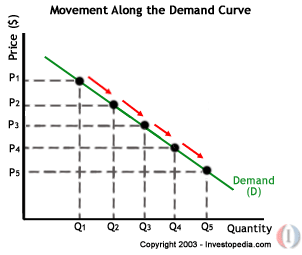I'm kind of weird. I like things a lot of other people find difficult and/or boring. For instance, I like math (I'm just not very good at it). I like science. And I have a deep autodidactic interest in economics.
You know that scene in Ferris Bueller's Day Off, with the economics teacher played brilliantly by Ben Stein? This scene. Not only did I know all the answers to his questions, I wanted to listen to more! I have taken one 200-level economics course in college but because of my major that's all I could fit in even though I found the subject very interesting. Also, I've read economics books (mostly for general audiences) and every book nearly I can get my hands on by economists Walter E. Williams of George Mason University and Thomas Sowell of Stanford. So I probably know a bit more about economics than the average Joe ("Ricardo's Principle of Comparative Advantage, anyone, anyone?").
So, I need to get a bit esoteric here (and don't let the scary chart above scare you). In economics there's the law of supply and demand. Basically it relates how supply (the amount available of something) affects its price. Lots of supply means low price (like salt; I think I last paid 10 cents for a thing of salt). Not much supply: high price (like diamonds). So if there is a lot of something available, the price of it is going to go down. Remember that for later.
Now, there is a principle in business and marketing called "diminishing the brand." If, for instance, Lexus put out a $15,000 econobox car, it would reflect badly on their $100,000 cars. It would "diminish the brand." Doesn't matter if the $100,000 car is still just as good as before, people would perceive it differently. This is probably one reason why the Volkswagen Phaeton flopped in the U.S. Who's gonna buy an $80,000 car from the people who brought you the Beatle? (Yes, I've now combined two of my loves: economic and cars, sorry about that.)
So here's where you as a writer should care. There are 1 million (about) books available on the Kindle because the costs of publishing on the Kindle run from zero to not very much (depending on how much work you do yourself). That has increased the quantity of books available. And by the laws of supply and demand, the price of all books, even those not self-published, have to come down. Also, buying a self-published Kindle book is a bit of a crap shoot. You could end up with a Yugo (to continue the car analogy) or a Lexus. Or better yet, a BMW (a bit more passion than a Lexus).
I suspect a great deal of the self-published (i.e., "indie") books on Kindle and other formats (including paperback), are pretty mediocre. Well, you've got half a million or so indies, they can't all be brilliant undiscovered diamonds in the rough. So people are expecting less from writers and our brand, so to speak, is being diminished by a huge supply of not-very-good books. The supply has gone way up so the price is being driven down (as low as zero in some cases). The quality has gone down too, so the brand "author" has diminished and this, too, has driven prices down.
I don't have a solution. Amazon reviews help (but some indies get their friends and families to leave a bunch of 5-star reviews while I get a 2-star review because someone doesn't like my writing or something). Even if you have a bunch of 4 and 5-star reviews, your brand is being diminished bythe shear quantity and low quality of other "authors."
And it seems those who sell the most books are not those who write the best books but are best at promotion (which might be sour grapes on my part because I seem to suck at promotion).


No comments:
Post a Comment